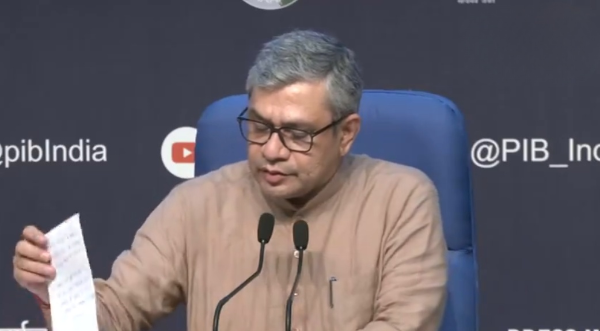Union Minister Ashwini Vaishnaw has reinforced the government’s adherence to the constitutional framework regarding reservations for Scheduled Castes (SC) and Scheduled Tribes (ST), following a recent Supreme Court judgment. Speaking at a press briefing, Vaishnaw outlined the government’s position on the ongoing discussions and implications of the court’s decision.
“Today’s Cabinet meeting focused extensively on the Supreme Court’s recent judgment concerning reservations and its recommendations for SC and ST categories,” Vaishnaw said. “The NDA government is fully committed to upholding the Constitution as envisioned by Dr. B.R. Ambedkar.”
Vaishnaw stressed that Dr. Ambedkar’s Constitution does not include a provision for a ‘creamy layer’ within SC and ST reservations. “According to the Constitution drafted by Dr. Ambedkar, there is no provision for a creamy layer within SC and ST reservations,” he added.
The Supreme Court’s ruling has ignited discussions about the potential inclusion of a creamy layer—a concept used to exclude relatively more affluent members within reserved categories—from the reservation benefits. Vaishnaw’s statement clarifies that the government intends to maintain the existing framework, which does not account for socioeconomic distinctions within SC and ST categories.
The Union Minister’s remarks aim to address and clarify concerns raised by the recent legal interpretations and public debates on the reservation system. By reaffirming the constitutional position, the government seeks to ensure consistency in the application of reservation policies and maintain the integrity of the original intent behind these provisions.
As the legal and policy discourse continues, Vaishnaw’s comments underscore the government’s commitment to the principles laid out by Dr. Ambedkar, focusing on providing reservation benefits to the intended beneficiaries within the SC and ST communities. The Cabinet’s ongoing deliberations reflect a broader effort to address contemporary challenges while remaining true to constitutional mandates.



